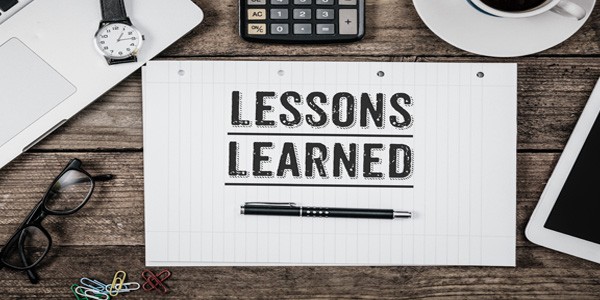In the past 50 years workingwith both sales and service professionals to build customer satisfaction and maximize dealership profits, I’ve found there are several lessons that surface and re-surface repeatedly. These lessons are the foundation of good sales and of good business. Yet many lose sight of them as they race to find the proverbial silver bullet or magic potion to elevate sales and service.
The 10 important lessons.
- The Red Carpet Treatment. Delivering the Red Carpet Treatment, means that you treat a customer exactly like you’d treat a guest in your home. You’d greet them, invite them in, offer refreshments, develop your relationship and engage in conversation. When you treat customers right, it makes your job easier. And, it helps you make sure the customer gets what they are looking for: someone they trust and have confidence in.
- Cultivate clients, not customers. It’s not enough to provide good service when you have time. It must be delivered consistently and over time. Customers can go anywhere; loyal clients come back to you.
- A salesperson’s job is not to sell. Many salespeople, whether in sales or service, may take exception to this statement. Yet, it’s a core truth of our profession.
So, what is a salesperson’s job if not to sell? A salesperson’s job is to help customers find the exact product or service that meets their needs, wants and desires, and, in doing so, make sure their experience is positive. To achieve this, three things must happen every day, all day. Sales and service people and must be 100% present with a single-minded focus on each client. They must ask the right questions, actively listen, learn and understand problems from their customers’ points of view so they can guide their selection. Finally, they must help customers “fall in love” with the product or service by showing how it improves their lives — either personally or professionally.
- Now. In sales, there is only one true definition of now: it’s when the customer is ready to buy, not when you are ready. For most consumers, no matter how hard the push is to buy now, they won’t if it is not the right product. If customers are planning to buy, they will, when they are ready. They’ll make a purchase when they’ve been given enough time to consider options and given enough information to determine the best choice. Respect their desire to make a decision on their timeline. When they are ready, it’s now time.
- Change your vocabulary. There are words and phrases that have crept into salespeople vocabulary that need to be eliminated, permanently. These are “no,” “don’t,” “won’t,” “can’t” and “would you, if I?”. Eliminate all of these from your vocabulary, permanently.
- The customer is more informed. Fifty years ago customers were limited on how much information they could get about a product before the purchased it. The only sources were libraries, advertising, dealership brochures or showrooms. Today, the Internet has changed all that. Customers are more informed than ever. They research not only a product or service, but the company they plan to do business with.
Before they ever arrive, they know your inventory, your costs, what manufacturers will build, what’s in and what’s obsolete, among other information. Salespeople need to know the product. They must embrace this and focus on creating an exceptional experience for the customer, letting them try out the product, and helping them buy.
- Be accountable. Accountability is one of the most powerful traits we have in both work and personal life. When you are accountable, your self-esteem grows, and you find greater success. You earn the respect, gratitude and loyalty of your customers, colleagues and employers. Let’s face it. Ask yourself this, would you rather work with someone who is accountable or someone who is always blaming others?
- Communicate. There are two important parts to communication: listening and conveying information. Unless a salesperson does both, attentively and effectively, sales will be a challenge. This applies to customers and to internal team members.
- Be consistent. When salespeople are educated on processes and apply them consistently with every customer, they are better equipped to deliver consistent service and sales excellence.
- Train, educate and learn. You must commit to developing yourself. No one is going to do it for you. Never stop learning. In fact, every time you get the opportunity, take it, no matter how big or small, if it’s free or costs money, or if you earn CE credits or not. You may hear the same things over and over, but even if you learn one thing, it’s worth it. And, don’t discount experience; it is the best teacher. Remember, “The person who stops training to save money, is like the person who stops the clock to save time.”
Richard Libin














